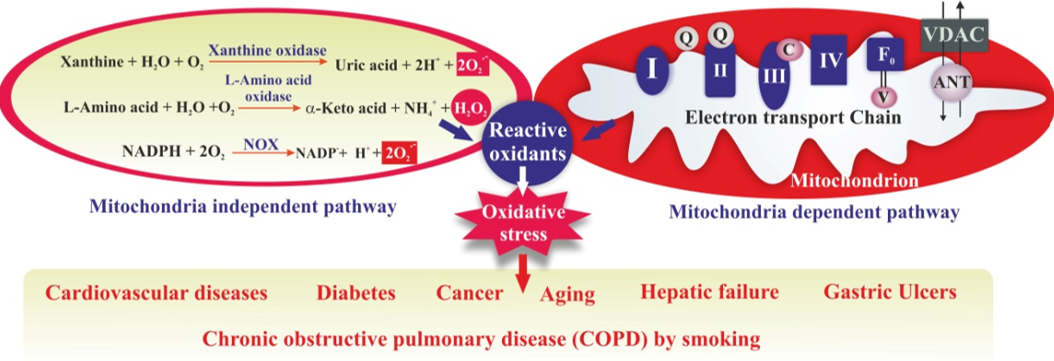Molecular mechanism facets of Oxidative stress mediated pathogenesis

Keywords:
Oxidative stress, ulcers, aging, cardiovascular diseases, pulmonary disease, hepatic failure, diabetes, cancer, molecular mechanism, oxidation pathwaysAbstract
Oxidative stress arises from an imbalance between reactive oxidants and the antioxidant defense system in cells. This article outlines the mechanisms and effects of oxidative stress on disease onset. Reactive oxidants, like superoxide anion and hydrogen peroxide, are normal byproducts of cellular metabolism. The antioxidant defense system maintains a delicate equilibrium by neutralizing these oxidants through enzymatic and non-enzymatic processes. However, when the production of reactive oxidants exceeds the antioxidant capacity, oxidative stress occurs, causing cellular damage. This damage includes lipid peroxidation, protein oxidation, DNA damage, and mitochondrial dysfunction. These processes lead to cellular damage, inflammation, and activation of disease-related signaling pathways. Oxidative stress further worsens tissue damage and promotes chronic diseases by increasing immunological responses and inflammation. The article extensively covers oxidative stress in various diseases such as cardiovascular diseases, COPD from smoking, aging, gastric ulcers, hepatic failure, diabetes complications and cancer. Understanding oxidative stress mechanisms and developing effective therapeutic strategies can provide new options for disease prevention and treatment.
URN:NBN:sciencein.jmc.2023.587
Downloads
Published
Issue
Section
URN
License
Copyright (c) 2023 Chinmay Pal

This work is licensed under a Creative Commons Attribution-NonCommercial-NoDerivatives 4.0 International License.
